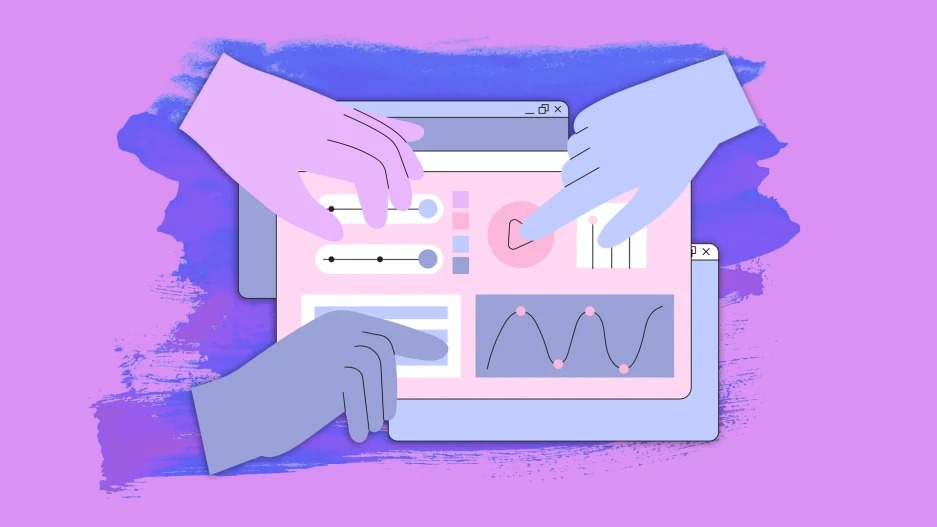- | 8:00 am
Developing this kind of empathy will set you on the fast-track for success
Business superstars not only display empathic resonance toward their customers but toward their employees as well.

Have you ever set up a YouTube Channel? It’s not hard, and I’ve done it before . . . despite my recurring allergy to tech. So, when a friend asked for my help earlier this month, I was happy to volunteer.
I followed the simple directions and was just about to celebrate my success when a dialogue box popped up on the screen with this instruction: Click the Create Channel button. Clear enough, except for one little detail: There was no Create Channel button to click.
Against my better judgment, I turned to Google support for assistance. Predictably useless. Next, I typed my dilemma into the search bar, which turned up a Reddit thread asking for help with the same problem.
I scrolled through the laments of countless users until, against all odds, I found an answer: “The dialogue box is too big for the screen. Zoom out and the button will appear.”
If I could charge my hourly fee for all the time I’ve spent navigating poorly designed sites and following poorly worded instructions, I wouldn’t need a job. Why on earth does a company like Google not fix such a piddling glitch? It would take so little effort for them to spare so many of their own users so much grief.
There really is only one explanation that makes any sense: Google doesn’t care.
DIFFERENT KINDS OF EMPATHY
Readers of a certain age might remember Lily Tomlin’s classic routine as Ernestine the Telephone operator, back in the day before cell phones when there was only one telephone carrier. After jeering at complaining customers, she signs off with: “We don’t care. We don’t have to. We’re the phone company.”
Life imitates art. Today, not caring seems to be the model for a staggering number of businesses. Chatbots that provide no useful information. Links that don’t work. Automated phone systems designed to push your blood pressure toward Jupiter. Support assistants who barely speak or understand English, assuming that you can reach anyone at all.
Within companies as well, employees feel that they’re expected to do their jobs without adequate resources, support, responsiveness, or appreciation. Is it any wonder that 58% of employees say they would trust a total stranger more than they trust their own boss?
If there’s anything that might make things better, it’s this addition to the Ethical Lexicon:
Empathic resonance (em·path·ic res·o·nance) noun
Connecting with the inner world of others to help them cope with their problems or provide the support they need.
The ability to empathize is critical for effective and ethical leadership. But empathy manifests in a variety of forms. Emotional empathy allows us to feel what someone else is feeling without necessarily understanding why or discerning what to do about it. Instrumental empathy enables us to connect with others in order to manipulate them. Think movie makers, advertisers, politicians, and con artists (pardon the redundancy).
Cognitive empathy, however, is connection motivated by the desire to not merely commiserate but actually support others with their problems. We understand empathy as subsuming oneself in another person’s psyche, as it were, to become a participant in their emotional experience.
In contrast, empathic resonance means retaining your own sense of self and objective distance while simultaneously aligning yourself with the other’s emotional state, like one tuning fork responding to the vibration of another.
PROVIDE SMOOTH UX AND EFFECTIVE SUPPORT
I don’t really care if Google feels my pain. But I think we can all reasonably expect businesses, especially tech businesses, to devote at least one small fraction of their resources to provide smooth user experience and effective user support. If ChatGPT can spew out a doctoral dissertation in half a second, why do we have to suffer through literally hours of inept response (or none at all) to use a product that we’re paying for—either directly or through the advertisers granted access to our attention?
And although I hold out little hope that Google is going to change its ways, the rest of us can learn from their example. Nobody feels loyalty to Google. We use it because it holds a virtual monopoly over online space. The moment a better option appears, we will all stampede in the opposite direction.
The formula for success hasn’t changed in eons. Provide a quality product at a fair price with reliable service; when you do, loyal customers will flock to your door. If you then go a step further by responding to their issues and concerns, you will win their hearts and minds forever. But take them for granted and they will come to despise you, all the more so if they feel they are trapped into using your product against their will.
To be sure, taking the high road is more demanding. Human operators no longer answer the phone when you call Discover Card, presumably victims of efficiency. But Zappos remains the gold standard for customer experience, and you never hear of anyone who doesn’t enjoy shopping at Trader Joes. These and other business superstars not only display empathic resonance toward their customers but toward their employees as well.
In a day when an industry has grown up around UX design, there’s no excuse for not making user experience less infuriating. We can and should tip our hats to the designers and coders who create brilliant software and platforms. But companies need to hire at least one person or service to ensure that customers can understand their directions and navigate their systems.
A little empathic resonance will set you on the fast track to success. Are you listening, Google? No? Well, you should, because others will. It’s worth remembering how David needed only a few small stones and a leather strap to bring down the heavily armored Goliath.







































